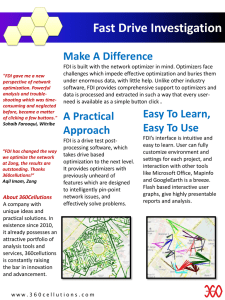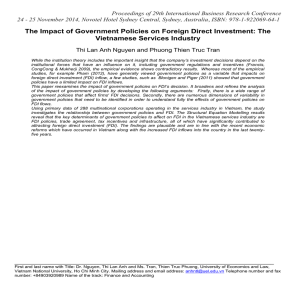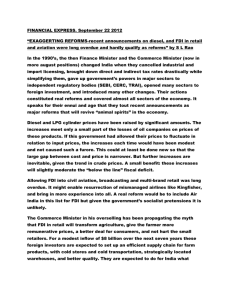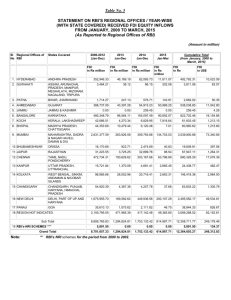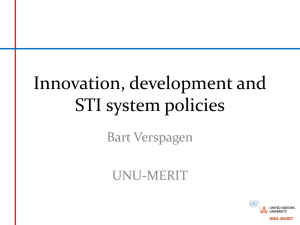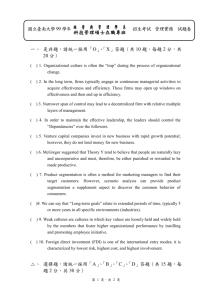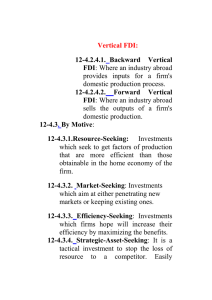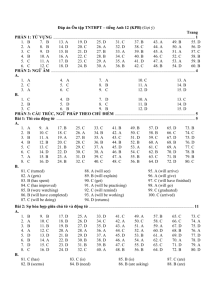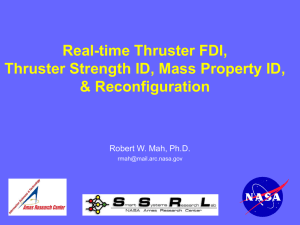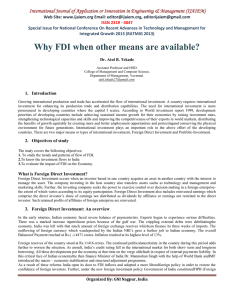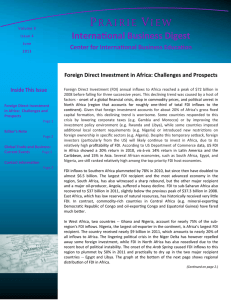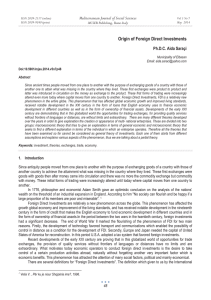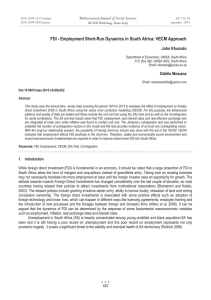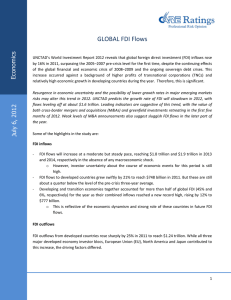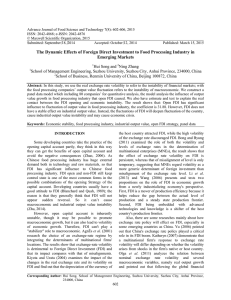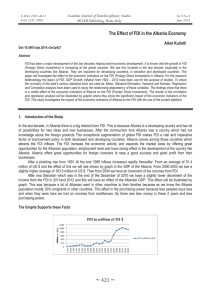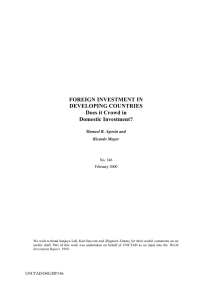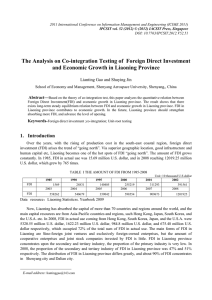Faculty Development Institute Creating an Advanced Learning Community
advertisement
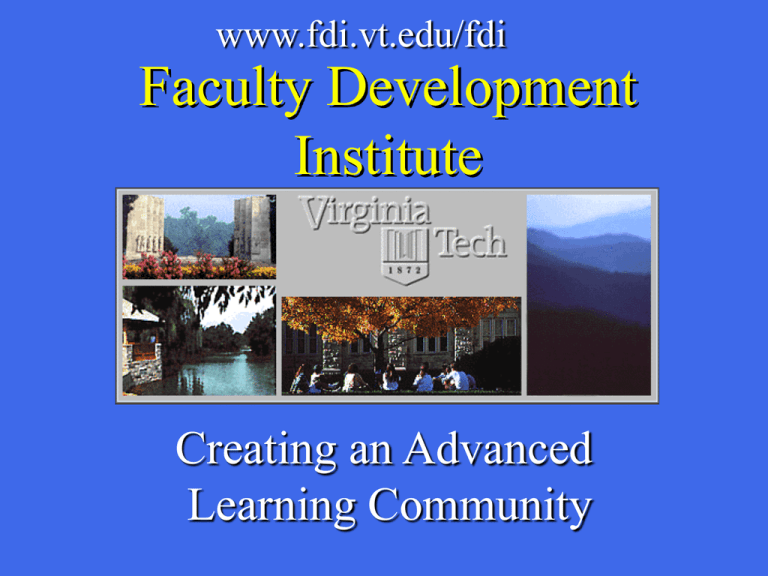
www.fdi.vt.edu/fdi Faculty Development Institute Creating an Advanced Learning Community Context for Change - 1992 Increasing calls for more emphasis on undergraduate education Aging mainframe environment Adoption of IT “stuck” Series of large state budget cuts University Restructuring Plan cited investing in faculty development and instructional technology Virginia Tech’s Response: Instructional Development Initiative Faculty Development Institute Student Access to Computing Facilities Enhancement Course Development Continuing Investments in Teaching and Learning Resources Students Infrastructure Faculty Curriculum (Parallel Change) Many university functions must actively collaborate on shared goal Information Systems moves to networked personal computing vision Provide the means to shift away from centrist, mainframe-oriented thinking Faculty Development Institute Faculty Development Institute Provide knowledge, skills and time to use instructional technology effectively FDI Status Report First four-year cycle completed in 1997: 1425 participants, 80 workshops FDI ‘97: 12,000 staff hours Second FDI cycle started this summer: 400 faculty attending 27 workshops FDI Aims for All University Faculty Provide time and resources to rethink options for T&L Participate every four years to update knowledge, skills, and technology Provide a computer, software and network connection to each faculty Provide supportive infrastructure Workshop Evolution Selection of faculty done by colleges, not Information Systems Initially focused on faculty teaching Core curriculum courses 1993 content: E-mail, word processing Internet (Gopher) Presentations: scanning, PowerPoint CAI: Authorware, HyperCard Mathematica, Daedalus, Perseus Workshop Evolution (2) 1993-96 -- Discipline-related groups Stressed curriculum-focused mission of FDI Homogeneous backgrounds Diverging entry skills & interests Partially customized content for each group 1997-98 -- Track-selected groups Heterogeneous backgrounds Closer match to entry skills & interests Multiple tracks for increasing divergence Faculty help teach workshops FDI ’97 Tracks Basic Computing Skills Computer-based Classroom Presentations Developing a Network-Interactive Course FDI ‘98 Tracks New Faculty Technology Orientation Basic Computing Skills Using MS Office for Basic Web Authoring Building and Managing Interactive On-line Courses Developing and Teaching Distance and Distributed Learning Courses Designing Learning Environments -Instructional Strategies Creating Multimedia and Digital Content Current Workshop Design Multiple content tracks, 2 - 4 days Project oriented Faculty presenters Lab helpers/tutors Frequent feedback Follow-up sessions Recap: FDI Focus Faculty driven, curriculum centered Emphasize instructional changes enabled by technology, not technology alone Give faculty time to rethink courses Recurring university investment in faculty, teaching and learning IDI #2: Student Access >1000 computers in 13 labs/classrooms Access for all students to powerful computers Access to disciplinerelated specialized software Freshman computer requirement Fall ‘98 IDI #3: Facilities Enhancements Simplify use of technology in classrooms by installing computer presentation systems Continuing campus network upgrades Servers Blacksburg Electronic Village 12 distance learning classrooms Net.Work.Virginia IDI #4: Course Development x Commercial Courseware Perseus Presentation Software Replication of Herpes Simplex Virus Cytoplasmic membrane of host cell Cytoplasm of host cell Adsorption and fusion with cytoplasmic membrane for penetration Uncoating of DNA Nuclear membrane Viral DNA RNA Enzymes Viral DNA Early protein synthesis RNA Assembly Enveloped by nuclear membrane Capsid proteins Envelope proteins Mature virus released from cell Late protein synthesis Cyberschool www.cyber.vt.edu Faculty sharing enthusiasm, insights, experiences, problems, techniques Collective advocacy with Administration - critical Credible voice to peers Instrumental in illuminating the potentials and the challenges Faculty Support Educational Technologies Decentralizing support staff, to departments & buildings Center for Innovation in Learning Center for Excellence in University Teaching New Media Center NetBasics workshops for students What We Have Learned Build and reinforce top-level endorsement, advocacy and commitment Stay focused on curricula and the needs and accomplishments of faculty and students, not technology Assess outcomes and encourage dialog What We Have Learned Faculty are committed to learning how to use technology effectively to improve teaching and enhance learning Considerable latent enthusiasm unleashed Student enthusiasm motivates faculty effort More Information Instructional Development Initiative: www.edtech.vt.edu/ idi/ Cyberschool: www.cyber.vt.edu E-mail: John.Moore@vt.edu

